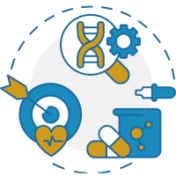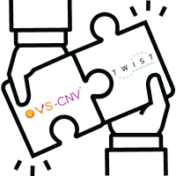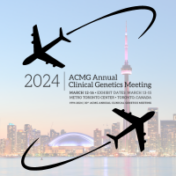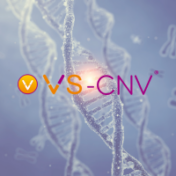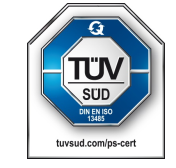We are pleased to announce new training materials are available for multi-sample workflows in VarSeq! Specifically, we have a New Carrier Screening Tutorial and New Onboarding and Training guides for Carrier Screening Analysis in VarSeq, and Clinical Evaluation and Carrier Status Reporting in VSClinical. This blog gives an overview of what the user can expect to encounter when working through… Read more »
Variant curation is one of the most important aspects of a next-generation sequencing workflow. The routine application of previously rendered interpretations, paired with the ability to take into account evolving knowledge bases, allows clinical practices to rapidly and accurately provide life-saving results to patients. Hence, assessment catalogs, versatile databases that store variant interpretations for rapid access, form one of the… Read more »
In this blog post, we will explore the nuances of variant calling and import in the context of VSPGx. We will discuss the importance of integrating must-call variant definitions into the calling processes and provide guidance on incorporating copy number variants (CNVs) and structural variations (SVs) into your PGx analysis workflow. Must Call Variant Files To ensure the optimal performance… Read more »
The release of VarSeq version 2.6.0 provides many new features. Most notably is our support for tertiary analysis of Pharmacogenomic (PGx) data. VarSeq not only calls the necessary gene diplotypes for your PGx panels but also handles large batches of samples from the called diplotypes to final report on drug recommendations. Here is a link to a recent webcast demonstrating… Read more »
Our customers often ask if they can include quality control metrics in their final reports. While which metrics you actually need to report may be unique to your lab, there are a variety of metrics that we can immediately render into a report, and even more that can be rendered with a few customizations. Reporting Average Coverage QC Metrics One… Read more »
Bioinformatic freedom is core to the user experience with Golden Helix software, a topic with which you will be well-versed if you’ve kept up on our recent blogs. We are constantly endeavoring to provide our users with powerful tools to tackle complex and impactful next-generation sequencing (NGS) workflows while maintaining transparency and the ability to customize and augment each component… Read more »
In the rapidly evolving field of genomics, innovative technologies, and methodologies are constantly being developed to enhance our understanding and diagnosis of genetic disorders. Golden Helix’s VarSeq and VS-CNV software platforms stand at the forefront of this revolution, offering powerful tools for genetic data analysis and interpretation. This blog highlights recent research endeavors where these tools have been instrumental. From… Read more »
We have been building up to the final release of VarSeq 2.6.0 for a couple of weeks now, but we are excited to announce that 2.6.0 is officially available! VarSeq 2.6.0 is an exciting release as this version of VarSeq features the introduction of VSPGx, offering a complete pharmacogenomic workflow, including data import, variant analysis, and report generation. We have… Read more »
Recently, at ACMG 2024, we unveiled a collaborative research project with Twist Biosciences. By utilizing Twist Bioscience enhanced Exome 2.0 Plus Comprehensive Exome Spike-In capture panel with added backbone probes, we developed a multi-modal CNV caller designed specifically for target-capture NGS data to detect single-exon to whole-chromosome aneuploid CNV events. We are proud to say that from Golden Helix, Andreas… Read more »
When a variant shows up as rare in the general “healthy” population, as indicated by low frequency or absence in one or more commonly referenced population catalogs such as GnomAD Exomes or 1000 Genomes, this indicates by proxy that the variant may be pathogenic. However, several factors determine the frequency threshold below which a variant is considered rare enough to… Read more »
Thanks to all of you who were able to attend the live webcast introducing the newest genomic analysis tool within VarSeq, VSPGx! For those of you who could not make it to the live presentation and demonstration, I will fill you in on what we covered. If you would like to watch or re-watch the webcast, you can access it… Read more »
Leading the Genomic Revolution with VarSeq Suite, Revolutionizing Precision Medicine, and Envisioning a Path for Healthier Tomorrow: Golden Helix Inc We recently were awarded by CIO Bulletin 2024, a winner of their Innovation Excellence Awards. Due to our groundbreaking contributions to the field of precision medicine, this recognition is greatly appreciated. Here’s a summary of the key highlights: In conclusion,… Read more »
There are many ways to optimize an individual workflow, from increasing the granularity of a filter chain to automating certain multi-stepped tasks. Although the best way to optimize an individual workflow is to book a session with our FAS team to talk about your unique use case, we wanted to highlight five ways a workflow can be optimized across most… Read more »
Welcome to our engaging journey through the fascinating world of pharmacogenetics! In this friendly guide, we’re going to explore how our unique genetic makeup influences the way we respond to medications. It’s all about making medicine more personalized and effective for everyone. This eBook, Pharmacogenetics takes you into the world of a cutting-edge field at the intersection of genetics and… Read more »
VSPGx is a pharmacogenomics interpretation software based on CPIC recommendations. The field of pharmacogenetics bridges genetics and pharmacology, with the aim of optimizing drug therapies for individual patients based on their unique genetic makeup. It has the potential to revolutionize healthcare by improving drug efficacy, reducing adverse reactions, and advancing the concept of personalized medicine moving away from a one… Read more »
Join Golden Helix at the American College of Medical Genetics and Genomics (ACMG) 2024 conference and discover the latest advances in genetic research. This premier event brings together leading researchers, clinicians, and industry experts to share their insights on cutting-edge topics in medical genetics. Stop by our booth for a live demo of our software, learn about the latest features,… Read more »
In our recent webcast, we unveiled the integration of the Twist Bioscience Exome 2.0 Plus Comprehensive Exome Spike-in capture panel with VS-CNV, marking a significant advancement in genetic diagnostics. By addressing the limitations of standard exome kits that miss vast genomic regions, our enhanced panel introduces ‘backbone’ probes for comprehensive genomic coverage. This innovation enables the detection of CNVs, LOH,… Read more »
We at Golden Helix are thrilled with our recent release of gnomAD v4! The curation of this massive database was a huge undertaking for our development team, but with the addition of new features, we believe it was well worth the wait. This annotation track contains allele frequencies from a more diverse population than ever before, with the addition of… Read more »
The Broad Institute’s release of gnomAD v4 needs no introduction as the data in this release is highly sought after by professionals in the genetics community, and the v4 release has a lot to boast about! The v4 release is roughly five times larger than the v2 and v3 releases combined and includes data from 807,162 total individuals. Naturally, exome… Read more »
This month, we are excited to announce that we have received the certification for ISO 13485:2016 from TÜV SÜD. ISO 13485:2016 is an international standard that specifies requirements for a quality management system (QMS) for organizations involved in the design, development, production, and servicing of medical devices. It is specifically tailored to the medical device industry and is recognized globally… Read more »



